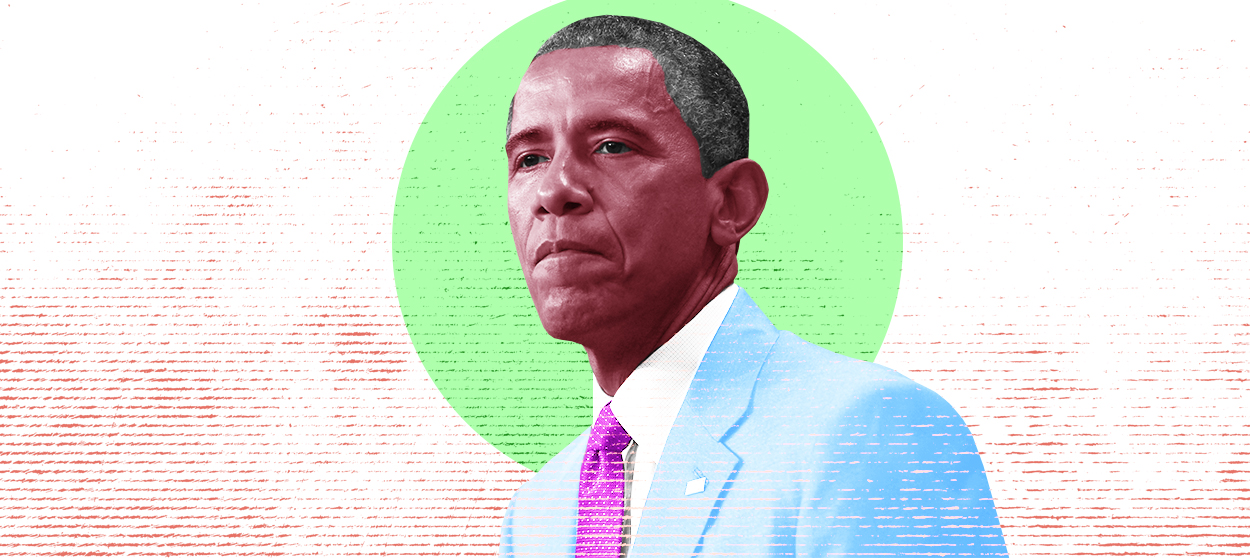Democrats have officially given up on the economic theory of ObamaCare
The party's signature legislative achievement has become an ideological zombie


A free daily email with the biggest news stories of the day – and the best features from TheWeek.com
You are now subscribed
Your newsletter sign-up was successful
ObamaCare will continue to trudge along as a program providing health-care coverage to millions of Americans. But it is an ideological zombie.
As of last week, it seems the Democratic Party as a whole has officially given up on the economic theory that shaped nearly every element of the Affordable Care Act's design. That is, no segment of the party — neither the progressives aggressively pushing Medicare-for-All nor the moderates calling for more gradual reform — now believes real change to the American health-care system can be brought about by individual health-care payers being better shoppers. This marks a massive paradigm shift within the entire party.
Last Tuesday, the House voted overwhelmingly (419-6) to repeal the Affordable Care Act's "Cadillac tax." Nearly all of the chamber's Democrats voted for the bill. The controversial provision of the ACA would have applied a large tax to employer-provided insurance plans over a set value, starting in 2022. According to the Congressional Budget Office, the repeal will increase the deficit by $197 billion.
The Week
Escape your echo chamber. Get the facts behind the news, plus analysis from multiple perspectives.

Sign up for The Week's Free Newsletters
From our morning news briefing to a weekly Good News Newsletter, get the best of The Week delivered directly to your inbox.
From our morning news briefing to a weekly Good News Newsletter, get the best of The Week delivered directly to your inbox.
This reversal comes almost exactly 10 years after President Obama spent a huge amount of political capital fighting to ensure this provision made it into his signature health-care law. Obama took on friendly labor unions, businesses, and activists in order to get this tax included, despite terrible polling for the provision. The tax was the main basis for Obama's oft-repeated claim that the ACA would "bend the cost curve." It was the keystone to the payer-focused strategy of reform that Democrats championed at the time.
One of the general theories to the ACA was that health care is too expensive in America because people paying for care aren't trying hard enough to get a good deal. The Obama administration's main plan to control costs was to make health-care buyers better shoppers. The Cadillac tax was designed to encourage employers to try to shop for cheaper insurance plans and to increase deductibles for their workers. The idea was that forcing people to have more "skin in the game" would result in them becoming smarter health-care consumers and not buying care they don't need.
The Cadillac tax was one of the main ways the ACA applied this payer-focused theory to the large employer market, while the law's new exchanges did the same for the individual and small business market. The exchanges were designed to be a central hub to make comparing plans easier, thus helping individuals be better shoppers. People on the exchanges were nudged toward high-deductible "silver" plans, and subsidies were capped so middle-class people would need to pay the full price of whatever plans they chose.
But this strategy didn't work, because the problem isn't that businesses or individuals have never thought to try to negotiate for lower premiums. Similarly, regular people can't shop smartly for care because they don't have the training to know which treatments they actually need or can skip. There is after all a reason it takes so long to become a doctor. The problem is that dominant hospital networks and drug makers with patent-protected monopolies have all the leverage to set prices as high as they can. Since the passage of ObamaCare, the average premium for an individual coverage by private employer insurance has gone from $5,049 in 2010 to $6,896 in 2018, even as the average deductible for employer coverage increased from $646 to $1,350. Since 2014, the ACA exchanges' first year, average benchmark premiums have gone from $3,276 to $5,724.
A free daily email with the biggest news stories of the day – and the best features from TheWeek.com
The Democrats' approach was akin to finding out that your child's lunch money is regularly stolen by bullies — and responding by giving him less lunch money, with the hope that he'll fight harder for it. No amount of fighting spirit could save one small child against a group of bigger bullies.
Progressives' embrace of Medicare-for-All is an obvious rejection of this payer-driven strategy. It completely eliminates all concern with "skin in the game" and instead decides the only way to deal with bullies is to have the bigger, stronger adults (the government) step in. This intuitively aligns with proclamations that health care should be guaranteed as a "human right."
The shocking thing is — based on this vote to repeal the Cadillac tax and the campaign rhetoric of some 2020 presidential candidates — it's clear that even the centrists in the Democratic party have just as thoroughly abandoned the cost reduction theory behind the ACA as well.
Presidential candidate Joe Biden has positioned himself as the great defender of ObamaCare, but he wants to keep only its vague structure — not the economic theory that shaped its design. His plan to improve ObamaCare is all about reducing individuals' skin in the game by lowering standard deductibles (basing subsidies off gold plans instead of silver) and expanding subsidies so very few people pay the full cost. The major cost control parts of his plan basically have nothing to do with making people better shoppers and are squarely focused on having the government actively drive down prices by taking on providers and drug companies. Biden's "public option" proposal is not sold as improving competition but as a way to "reduce costs for patients by negotiating lower prices from hospitals and other health-care providers."
There remain some big divisions within the Democratic party around how to expand coverage, how to pay for coverage, what should be covered, and how much the government should force different parts of the industry to bring down prices. Yet in an important way, the party is more unified on these questions than it has been in a very long time. In just 10 years time, the theory that health-care costs could be reduced by simply giving buyers the right tools and incentives has gone from being the economic basis of the party's signature legislative achievement to being completely abandoned. Rarely does an ideological position with so much intellectual backing lose so much support so quickly.
Jon Walker is the author of After Legalization: Understanding the Future of Marijuana Policy. He is a freelance reporter and policy analyst that focuses on health care, drug policy, and politics.
